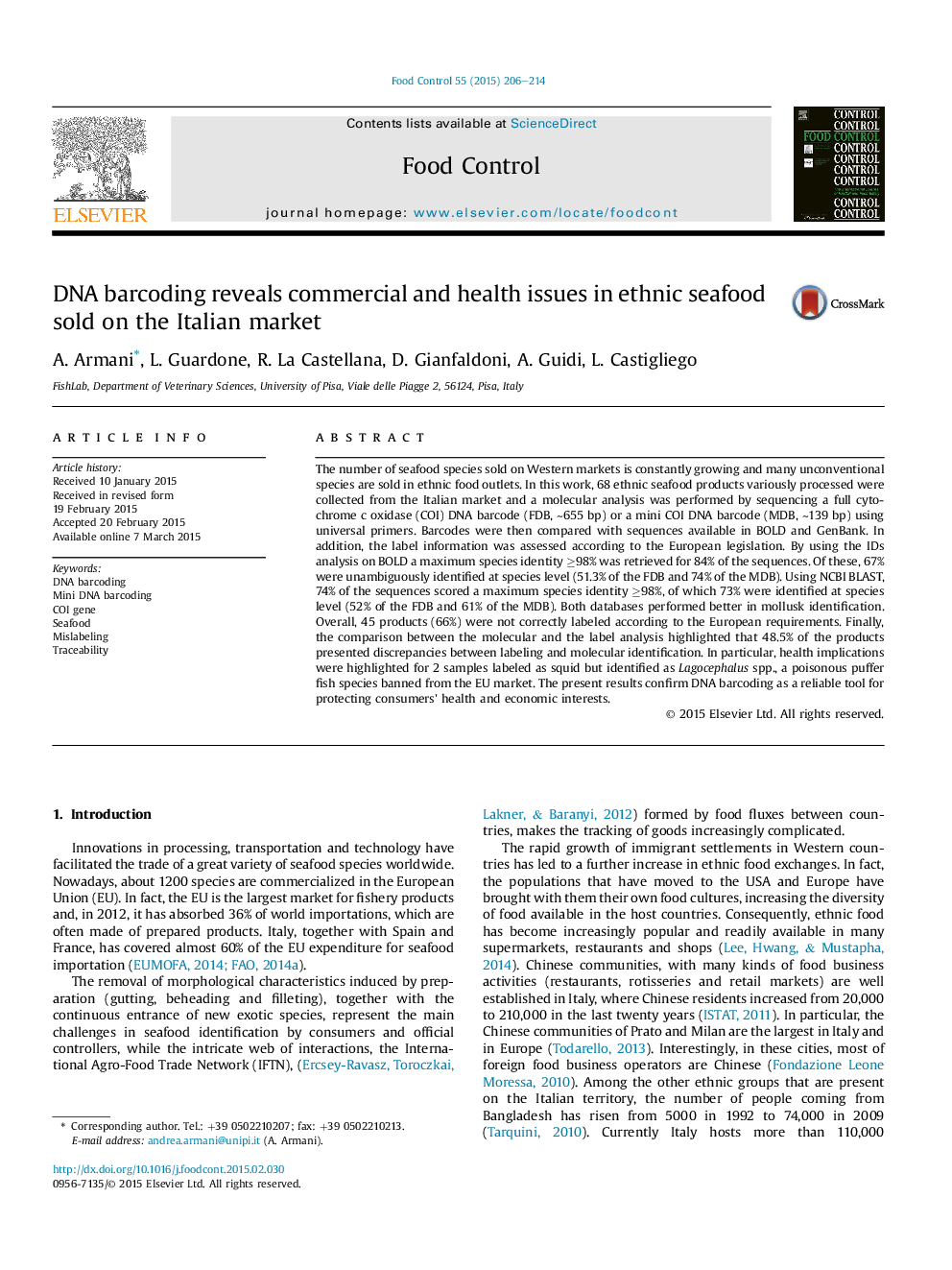| کد مقاله | کد نشریه | سال انتشار | مقاله انگلیسی | نسخه تمام متن |
|---|---|---|---|---|
| 4559303 | 1628407 | 2015 | 9 صفحه PDF | دانلود رایگان |

• Unconventional seafood species are sold in ethnic food retailers in Western countries.
• DNA barcoding is a useful tool for seafood species identification.
• Full and mini-DNA barcodes have been used for ethnic seafood identification.
• Full and mini-DNA barcodes show high discriminatory ability.
• Molecular and labeling analysis highlighted widespread mislabeling.
The number of seafood species sold on Western markets is constantly growing and many unconventional species are sold in ethnic food outlets. In this work, 68 ethnic seafood products variously processed were collected from the Italian market and a molecular analysis was performed by sequencing a full cytochrome c oxidase (COI) DNA barcode (FDB, ∼655 bp) or a mini COI DNA barcode (MDB, ∼139 bp) using universal primers. Barcodes were then compared with sequences available in BOLD and GenBank. In addition, the label information was assessed according to the European legislation. By using the IDs analysis on BOLD a maximum species identity ≥98% was retrieved for 84% of the sequences. Of these, 67% were unambiguously identified at species level (51.3% of the FDB and 74% of the MDB). Using NCBI BLAST, 74% of the sequences scored a maximum species identity ≥98%, of which 73% were identified at species level (52% of the FDB and 61% of the MDB). Both databases performed better in mollusk identification. Overall, 45 products (66%) were not correctly labeled according to the European requirements. Finally, the comparison between the molecular and the label analysis highlighted that 48.5% of the products presented discrepancies between labeling and molecular identification. In particular, health implications were highlighted for 2 samples labeled as squid but identified as Lagocephalus spp., a poisonous puffer fish species banned from the EU market. The present results confirm DNA barcoding as a reliable tool for protecting consumers' health and economic interests.
Journal: Food Control - Volume 55, September 2015, Pages 206–214